Room | Interview | “1970 Blues-Influenced Prog-Rock”
Room was a little known progressive rock band that released a truly stunning album for Deram in 1970.
Room started out as a bunch of chums in Blandford in Dorset getting a band together for a bit of fun and also to make their fortune playing at local village halls. This was 1968, post-flower power, but very much Hendrix and ultra-light guitar strings. As time went by, the band gained experience and moved on up the ladder, gigging around the country, making a record. Room’s 1970 album ‘Pre-Flight’ is a blues-influenced prog-rock with forays into jazz territories. Well-structured with interesting time changes. Gigs became more frequent and widespread. One was at the Royal Ballrooms and also had Pink Floyd and Status Quo on the bill…
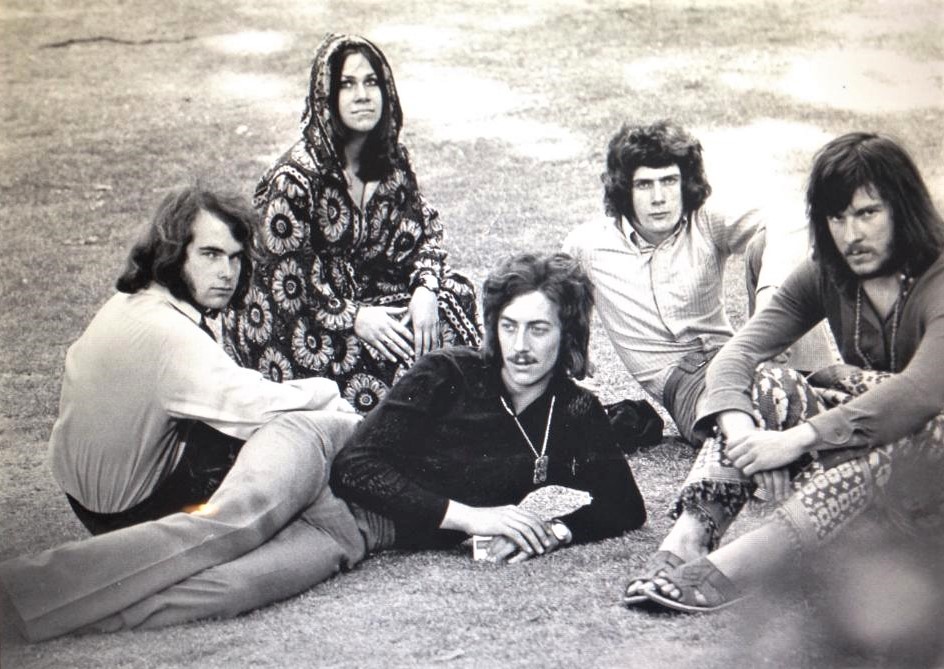
“We supported the original Fleetwood Mac and on one occasion we were third on the bill behind Pink Floyd and Status Quo”
Where and when did you grow up? Was music a big part of your family life? Did the local music scene influence you or inspire you to play music?
Roy Putt: I grew up in Blandford Army camp as my father was a Sergeant Major in the Army. My family wasn’t musical in any way. The only music in the house was what happened to be on the radio.
There were a few local bands around while I was at school and they were interesting because some of the musicians were my school mates but I wouldn’t call them inspiring.
Steve Edge: I was actually born in Singapore but my family settled in Dorset when I was still a toddler.
I cannot recall my parents playing instruments but they were both good singers and enjoyed a sing-song with the wider family. When he was still a lad, my Dad was a chorister at Leicester Cathedral, so he must have had quite a voice! I wasn’t so blessed but during my childhood I thoroughly enjoyed the likes of several great singers, such as Nat King Cole, Harry Belafonte, Doris Day and Dusty Springfield.
Living in a very small, remote Dorset village, there was no real “music scene.” However, my Uncle lived next door; he was four years older than me, and started acquiring records in the late 1950s. Mostly the popular stuff of the day and I was hooked. Earlier still, I remember Elvis Presley breaking through. Boy, he was good back then. But there’s no doubt it was Lonnie Donegan who inspired me to start playing.
When did you begin playing music? What was your first instrument? Who were your major influences?
Roy: I think it was the summer of 1965. A friend and I caught the bus to the nearest town that had a music shop and we each bought an acoustic guitar because that’s all we could afford. I’m sure we would have liked to buy electric guitars and amplifiers, but that was out of the question.
In the 1960s nearly everything was an influence. We had all the great bands releasing new music all the time, The Beatles, The Rolling Stones, The Kinks, The Byrds and many more. A particular favourite of mine is ‘Pet Sounds’ by The Beach Boys.
Steve: Mum and Dad convinced Santa to bring me a guitar, no more than a toy but good enough to get a tune from. My Uncle and his mates formed a short-lived skiffle group and kindly let me join in. And of course, copying the early stuff from Buddy Holly, Hank Marvin, Chuck Berry, The Everly Brothers, The Springfields, and of course Lonnie Donegan. The list of major influences grew considerably when my parents bought me a cutaway, acoustic Rosetti six-string…
Was there a certain moment in your life when you knew you wanted to become a musician for the rest of your life?
Roy: In the autumn of 1966 I started a course at art college and that’s when things happened that made me much more interested in music. Firstly I remember there was a record player in one of the rooms at college and someone had put on the John Mayall & the Bluesbreakers album called ‘A Hard Road’.
Then the track called ‘The Supernatural’ played and I was astonished by Peter Green’s wonderful guitar playing and I still am.
The following year I went with college friends to see several bands, in one concert, that were touring the UK. It was common in the 1960s to have maybe six successful bands play maybe twenty minute sets in a two hour show to promote their records.
This was my first real gig as a member of the audience and there were some great bands performing, like The Move and Pink Floyd but the headline act was The Jimi Hendrix Experience and that was a life changing moment.
I was familiar with the songs because I owned ‘Are You Experienced?’ and played it all the time. But hearing it on a record player and hearing it played live through four Marshall stacks sitting twenty metres away from Jimi Hendrix is a very, very different thing. I really was shaking in my seat. The following year I attended another gig that had a profound effect on me. I am sure that everyone is familiar with the Isle Of Wight Festival, but what is less well known is the year before what is officially known as the first Isle of Wight Festival there is another event called The Great South Coast Bank Holiday Pop Festivity. It lasted all night and was headlined by The Jefferson Airplane, again another life changing moment.
Steve: Not really. I have always enjoyed playing music. I think it just happened at the time. Since the days of Room I have merely played at home with just a few rare public events.
What was it like growing in your town?
Roy: Growing up on a military base was unusual in itself. As a kid it was fine, I spent a lot of time outside wandering around. Occasionally there would be mock training battles going on that we kids could watch as the soldiers would run around firing blanks at each other. When the firing ranges were not being used we would spend hours digging out the spent bullets from the sand where the targets were placed, obviously we didn’t go there when there was live firing going on. By the age of eleven I was in the shooting club firing military Lee Enfield .303 Rifles at targets in an indoor range. I could hardly lift the rifle but I could fire it and I was quite a good shot. As a teenager with long hair in the mid sixties life in an army camp could be tense, especially on the late bus home from town surrounded by drunk soldiers.
Steve: The Dorset village was very small – less than 200 souls – but the kids were bussed to schools in a nearby town so lots of opportunity to mix with lots more people. Music was not a big topic, though, which is surprising since several well-known musicians were from that town. No names. Only at the senior school did I meet kids who were also musicians, or were big music fans, and this clearly helped me focus more clearly on quality whilst exposing me to a much wider range of music.
What bands were you a member of prior to the formation of Room?
Roy: Room was my first band.
Steve: With Beatlemania, beat groups sprang up everywhere. Me and my chum, Terry, were no exception and drafted in two other fellas to form a local village band, The Krabs (the name of the band recalls an old village tale about a crab-shaped “monster”). I guess we were together from around 1963 until early 1967. Great fun. Doing covers of all the chart stuff. I left the band after a fallout and in any case, a few weeks later, my parents moved the family some distance to another part of Dorset.
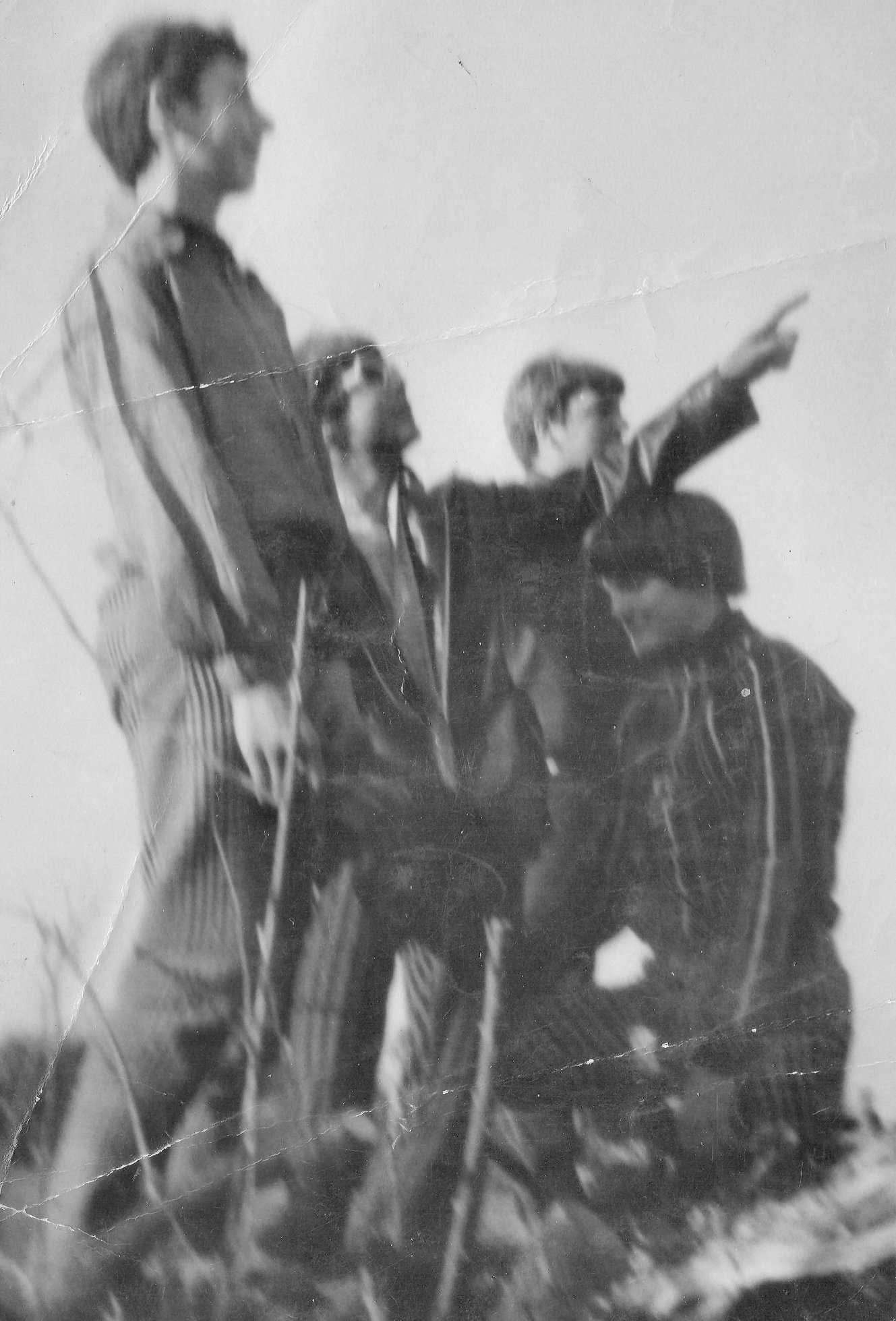
I then spent a year of so in and out of several local bands, nothing really stuck. I enjoyed jamming with a local guy, writing our own stuff, not performing, and just having fun; we were influenced by Captain Beefheart, The Byrds, Fairport Convention. By then I was at art college in Bournemouth. A whole additional set of musical influences. Especially the blues. I was already big on The Beatles and The Byrds, but then spent much time trying to work out just how Jimi Hendrix, Peter Green and Richard Thompson (then with Fairport Convention) worked their magic. In 1968 I went along to three festivals, the Blues/Jazz event at Kempton Park (key session being the Taste performance), Woburn (Hendrix) and the very first Isle of Wight event (Fairport Convention). So a great deal of listening and watching opportunities which, by trying to mimic those true greats, helped me so much.
I was working with three great lads in a bluesy guitar-drums-bass-piano band when fellow art college student, Roy, asked if I might be interested in joining his own band, Room. I went along for an audition, of sorts, at Blandford Camp’s Swan Centre. I was somewhat amazed at the band as it was then, and so pleased they took me on. With that chance, and with an ace lead guitarist in the shape of Chris, I could use those riffs in the style of McGuinn/Crosby or Harrison/Lennon to fill out the spaces in Room’s setlist of the day. I admit to enjoying that a lot.
What was the first song you ever composed?
Roy: I wasn’t a song writer in Room although I sometimes suggested some lyrics.
Although with the advent of home recording I now spend a lot of time recording and re-recording my own material, maybe one day I will release something!
Steve: Ah, no idea. I wrote so many in the hope that one in a thousand would be good enough to develop and perform.
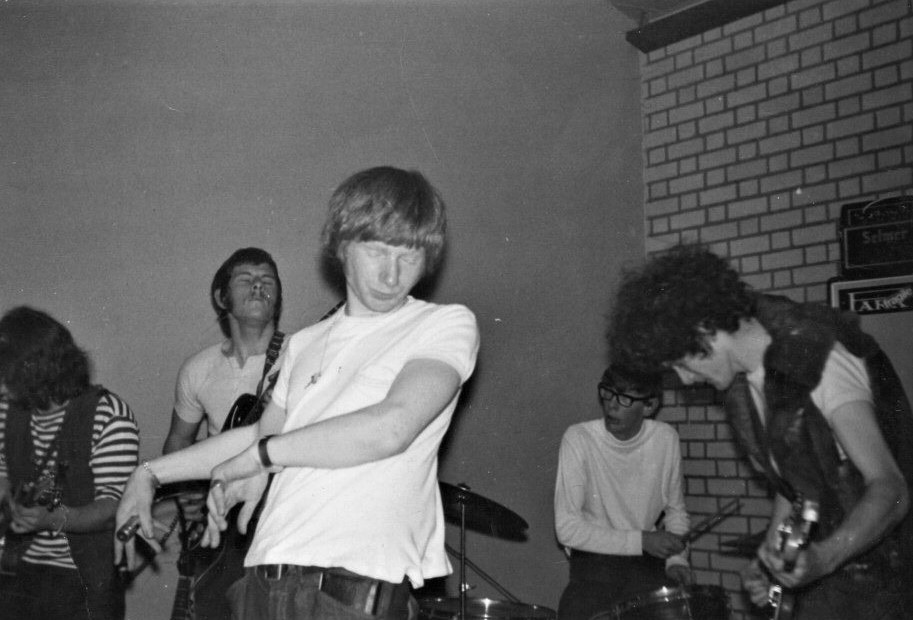
Can you elaborate on the formation of Room?
Roy: While at art college a friend and I volunteered to do “light shows” for a Blandford band called the One Way Blues Band, We had a couple of projectors with oil slides, you know the kind of thing. The guitarist in that band was Chis Williams. One evening the bass player didn’t turn up for rehearsal and had lost interest, so Chris, knowing I played guitar a bit, asked if I’d like to learn bass and join the band. I think I was 18 at the time.
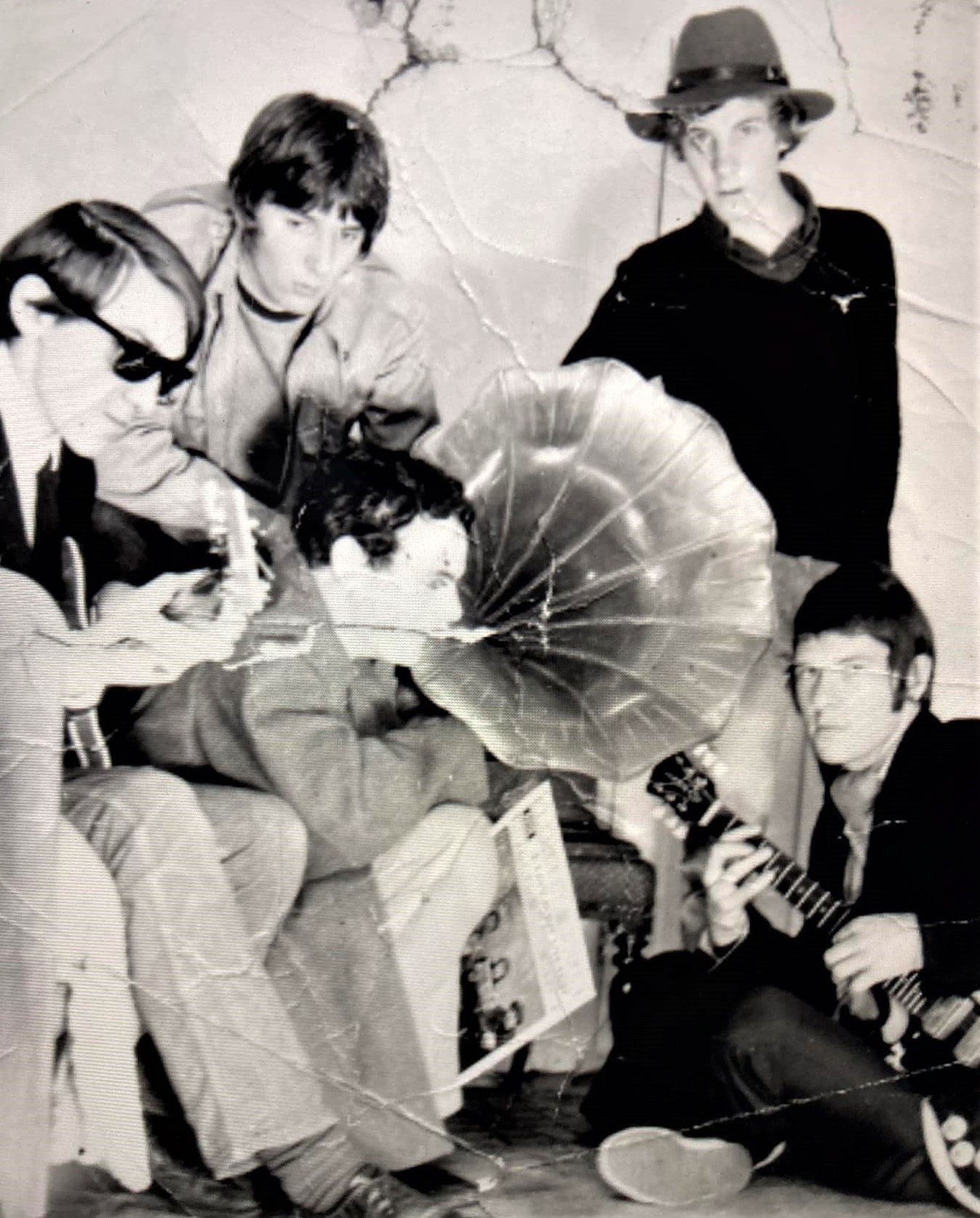
Shortly after that the drummer, who was the original bass player’s brother, left. So we recruited a local drummer called Pete Redfearn who had already worked with other local bands and another local musician, Roger Hope, as vocalist.
That line-up lasted for a while until Roger left and then Chris’s girlfriend, now wife, tried singing at a rehearsal. She was very good. So that’s how Jane joined the band.
Steve was at the same art college as me but one year younger. I knew he was a guitarist so I asked if he was interested in joining. I’m sure he can remember better than I can. It was a long time ago. That was the first line-up that started to write the original material that the band played on the album.
The next change was when we decided to turn professional. Pete the drummer was the manager of a successful record shop and decided he didn’t want to leave that steady job to take a chance with the band. So by some way or other, which I can’t recall, a very accomplished drummer from Bournemouth was persuaded to join the band and those are the musicians on the album.
Steve: Roy has explained it well.
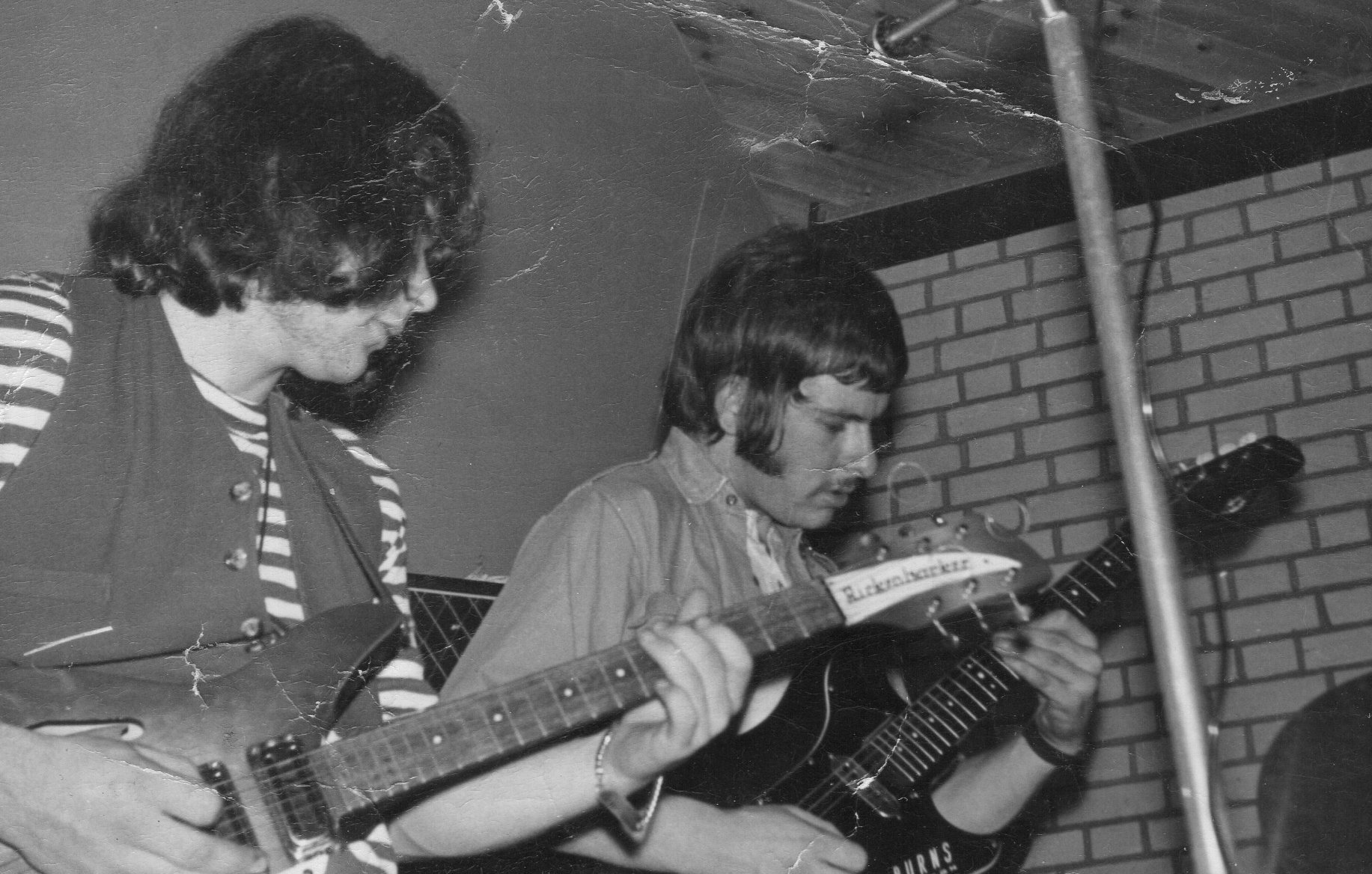
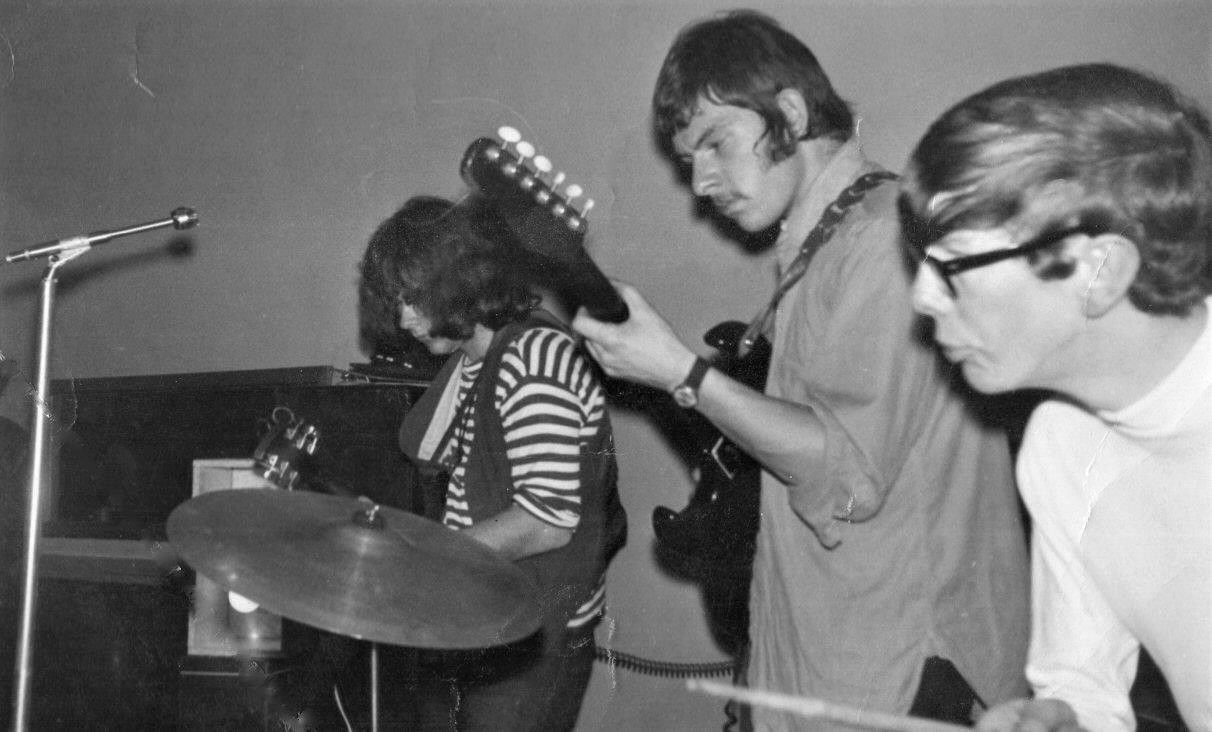
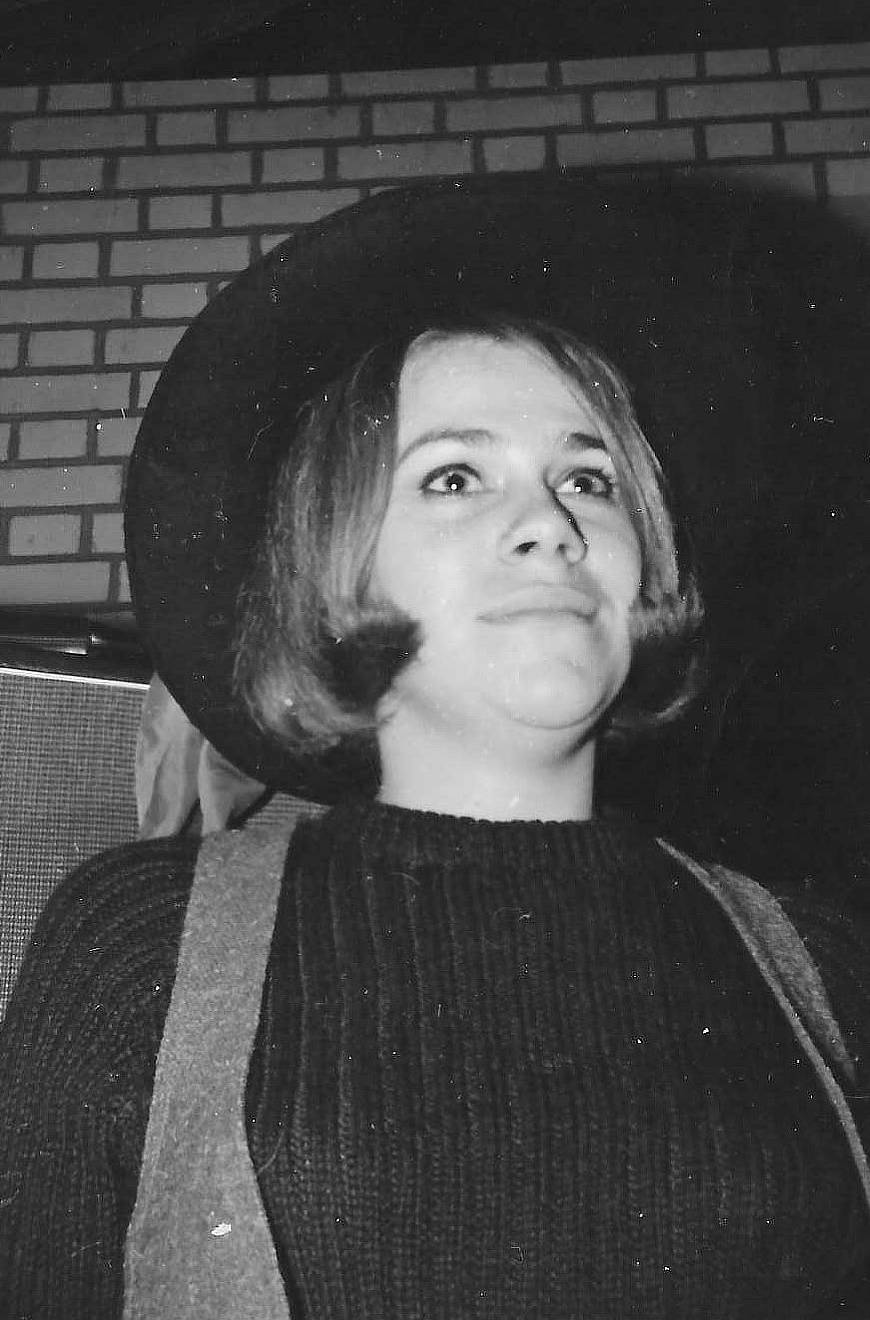
When and where did Room play some of the first gigs? How was the band accepted by the audience?
Roy: The very first line-up played in small local venues like pubs and youth clubs but the most important “step up” was when we managed to get a support slot at the Ritz ballroom in Bournemouth. The venue used to book all the up and coming London bands in the Blues and Progressive scene. I think the first night we played there the main act didn’t arrive so we did the whole gig and we went down well with the crowd so the manager booked us as the resident house band.
What sort of venues did Room play early on? Where were they located?
Steve: Village halls, town halls, school halls, pubs. We seemed to be happy to play any paying gig, anywhere.
How did you decide to use the name “Room”?
Roy: I think we were searching around for a name and had seen a poem by Conrad Aiken in an anthology called “The Room” which I thought had a mysterious quality to it, so I suggested it.
Steve: When I joined, the band was already called “Room.”
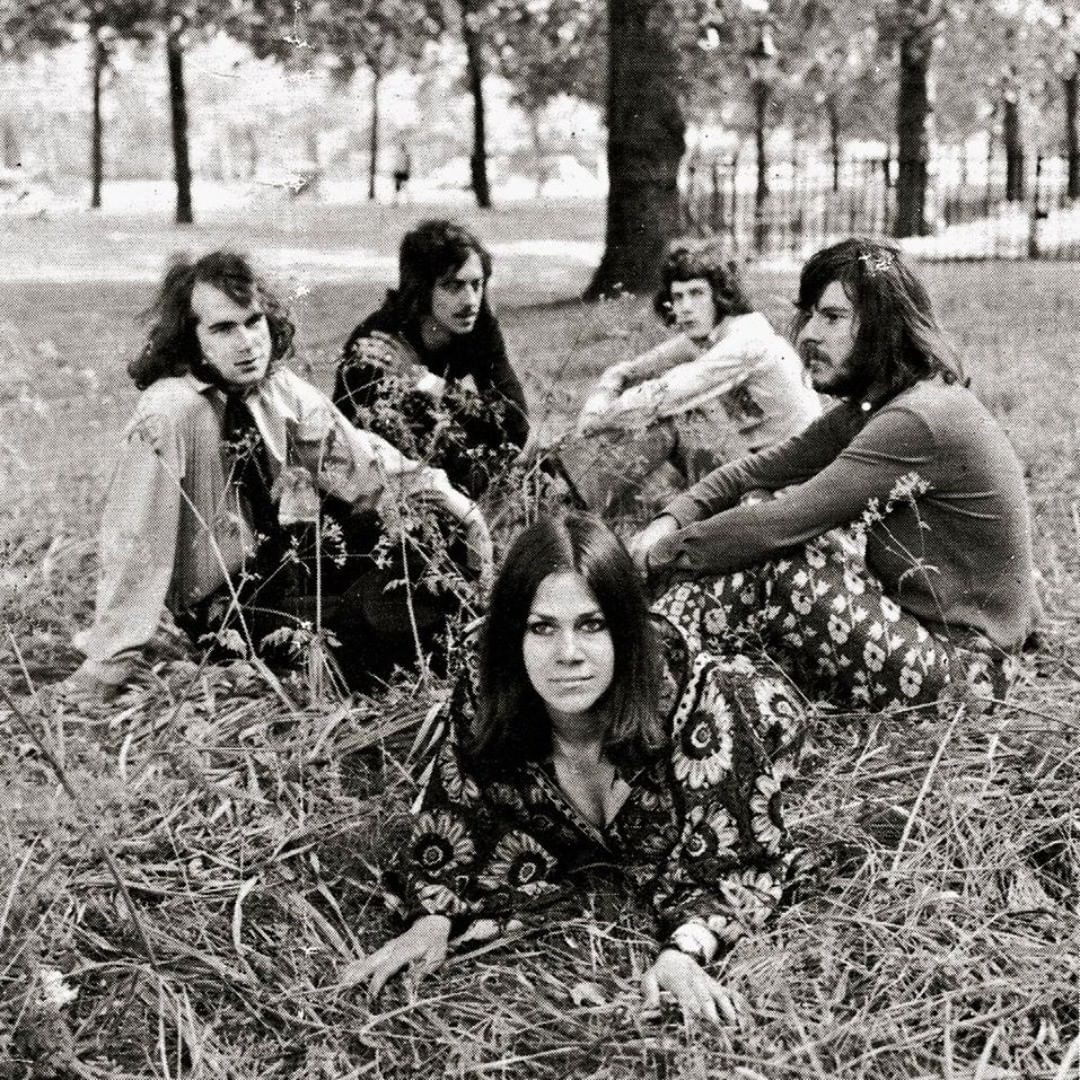
“We could not really decide who we wanted to sound like”
What influenced the band’s sound?
Roy: Well, the band’s sound really came from Steve and Chris, they were the writers, along with the quality of Jane’s vocals and Bob’s brilliant drumming. Steve can tell you about his influences.
My bass parts were usually worked out by Chris and were quite challenging to play considering my lack of experience.
I would have loved to play like Paul McCartney, but didn’t have the talent.
Steve: My feeling was that we were influenced by so many people from so many genres. Room had one real problem – in my view, we could not really decide who we wanted to sound like. A gig might include early progressive stuff, delta blues, hard electric rock, folk, pop, jazz, and so on. Our individual likes would always find a way in! So you might hear bits of Syd’s Pink Floyd, Gallagher’s Taste, Peter Green, the early Jethro Tull, Fairport Convention, The Byrds, Ray Davies, Mississippi John Hurt, Dusty Springfield or even Ella Fitzgerald…
How did you get signed to Deram?
Roy: We entered the Melody Maker talent contest and won the local heat and then came second in the London final at the Lyceum. Decca became involved as a result of that.
Steve: Roy has explained it well. All I can add is that none of it was truly planned.
What’s the story behind your debut album? Where did you record it? What kind of equipment did you use and who was the producer? How many hours did you spend in the studio?
Roy: The album was recorded at Decca’s West Hampstead Studio. The songs were all well rehearsed before the recording so all the tracking and some overdubs were done in two days. The orchestral parts were added later. I think we were all using Marshall amps then and Bob had a Hayman drum kit.
Steve: Yes, it was at Decca’s studio in Broadhurst Gardens, West Hampstead. The producer was Mickey Clarke – a lovely chap who had recorded and produced a wide range of music. I still feel our music was a bit strange to him at the time!
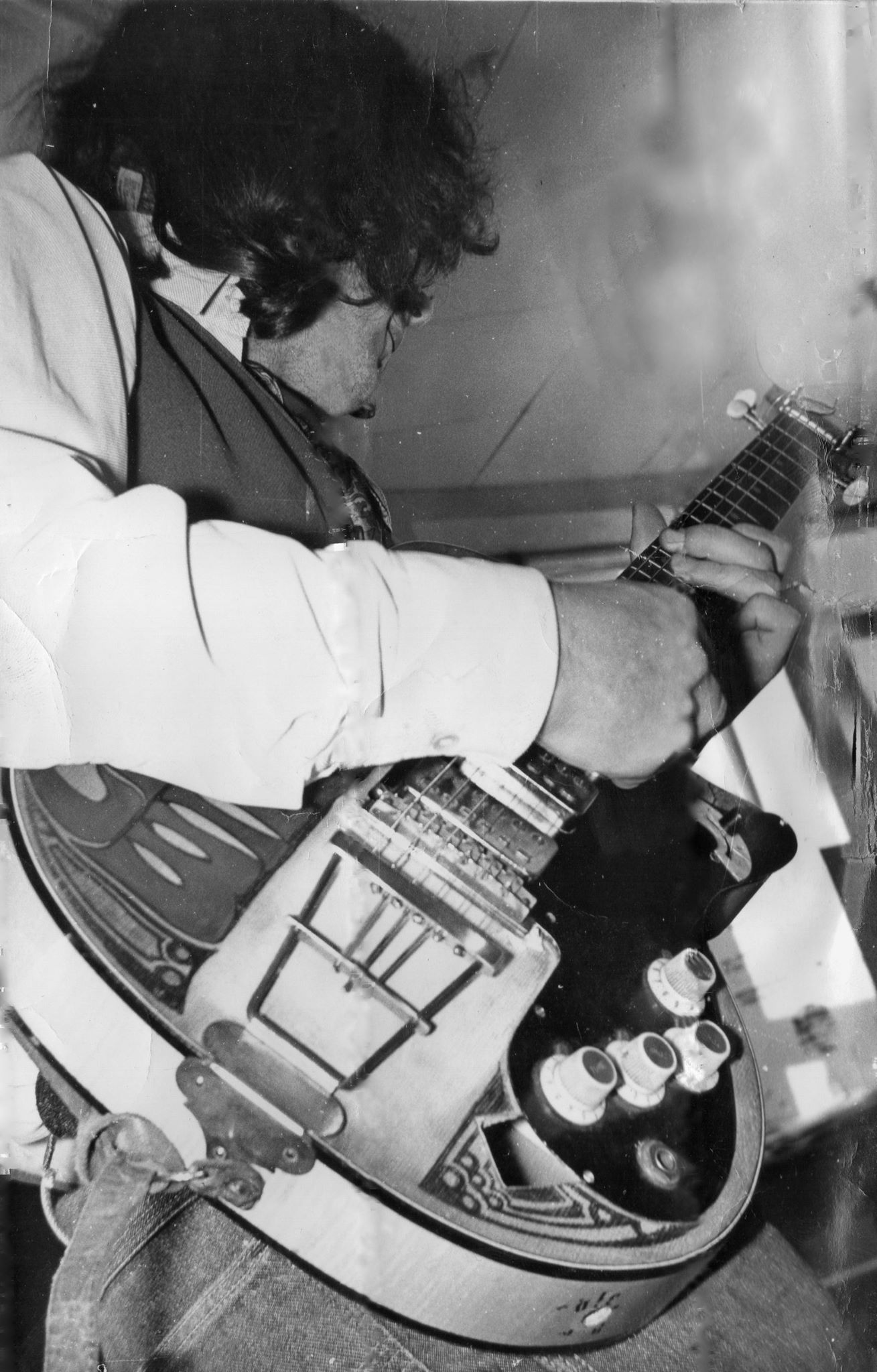
Please share your recollections of the sessions. What were the influences and inspirations for the songs recorded?
Roy: We all played live separated by low screens, but we could still see and hear each other.
I can’t recall how many takes each song took but it can’t have been many takes as we only had two days studio time booked.
It was only my second time recording, the first being at Orange Studios, for some demos, so I recall concentrating intensely to get through the takes without mistakes, which restricted my playing somewhat.
Steve: It was all so new to us. We had a very brief time at Orange recording studios earlier in the year when EMI asked us for a demo tape. The sessions at Broadhurst Gardens were both exciting and overwhelming. We came with no real idea of what was ahead. We’d previously met producer Mickey Clarke, a very competent chap, so it was good to see him again. He and the two engineers were very efficient and they helped us through what was quite hard work for us. I’m sure all the material recorded could be heard at live gigs at the time. So we just bashed on as if we were on stage. Mickey allowed a little double tracking on Jane’s vocals and Chris’s guitars, and the four part harmony on the opening track became an eight part. Although I’d earlier met musical arranger Richard Hartley to run through the songs, readers need to understand the orchestrations were added to our completed tracks some time after our recording session, with no input from the band.
Did the size of audiences increase following the release of your debut?
Roy: After the album was released we were signed to the Mecca agency so we ended up doing the “college circuit” to student audiences. Usually playing support to the bands we had supported in Bournemouth like the original Fleetwood Mac and on one occasion we were third on the bill behind Pink Floyd and Status Quo.
Steve: I’d left the band before the album was released so it’s difficult to comment here.
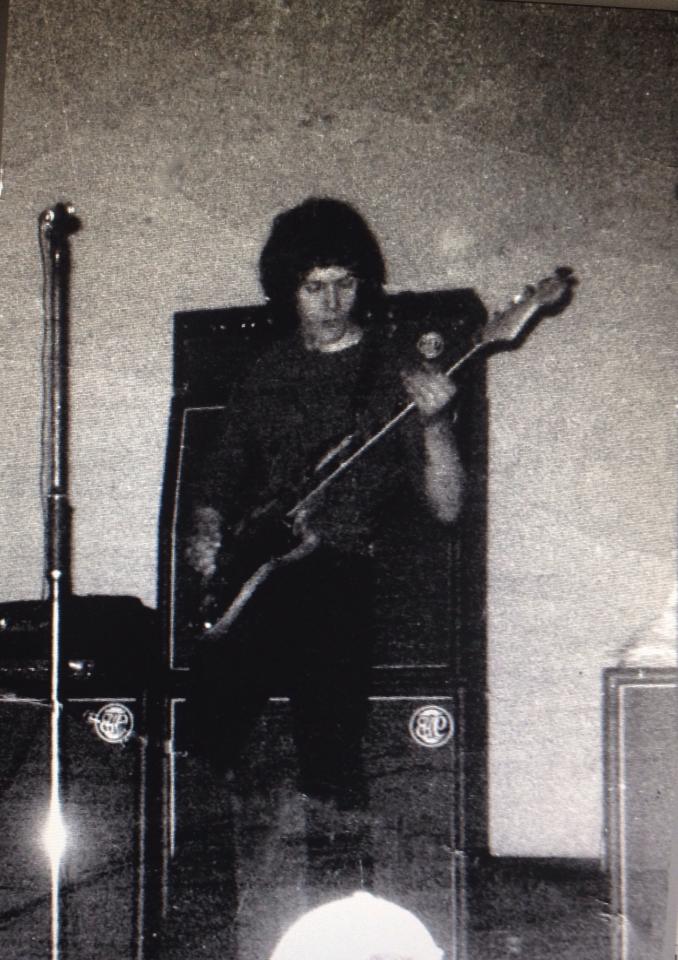
Would you share your insight on the albums’ tracks?
Roy: It’s difficult for me to comment as I wasn’t a writer.
Steve: The band had no input into the choice of tracks or the order of play. I’m sure Roy can chip in here. As composer of the opening track, I was rather pleased to see it up front and also as the album title.
‘Pre-Flight’ – An attempt at a long, multi-part, piece. Lots of bands had been doing this kind of thing for some years. It was played as one complete part, at gigs and in the studio. Not sure why someone decided to split it and add the (rather nice) orchestrations, and stitch it together. As for the tune itself, on the day we certainly overdid the dah-dahs section which remains forever painfully tedious. But I’m still happy with much of the rest, especially the Asus2 at the beginning and end, and the key changes in the quieter bit (with Jane on vocals and a little harmony too!) which hark back to a brief epoch when Chris and I were experimenting with more unusual chords, perhaps jazz-inspired. I’m not too bothered by Richard Hartley’s strings and horns arrangement on this one and I feel he somehow understood and embraced my more amateurish efforts.
‘Where Did I Go Wrong’ – I rather wish this was not on the album, despite Jane’s fine vocal work and some stinging guitar work from Chris.
‘No Warmth In My Life’ – This song had been on our setlist for a long time and perhaps showcases the direction we unknowingly were heading.
‘Big John Blues’ – A handy tune for live gigs allowing us to relax a tad but again maybe this should not be on the album.
‘Andromeda’ – A grand composition from Chris. At gigs, I loved doing the max volume chord progression Dmaj, Cmaj, Bmaj, but sad to say the power was somewhat lost on the recording.
‘War’ – Like the previous song, again the recording doesn’t capture the sheer volume of this one when played on stage.
‘Cemetery Junction’ – Another handy piece for live gigs, always played (and recorded) in one piece, but not sure about Richard’s middle section splitting it in two.
Was there a certain concept behind the album?
Roy: Not as such, I think the different ideas that the writers had produced a variety of musical tracks.
Steve: Not really – it was a subset of our live set list back then.
Did you experiment with psychedelics et cetera back then?
Roy: No.
Steve: Certainly not!
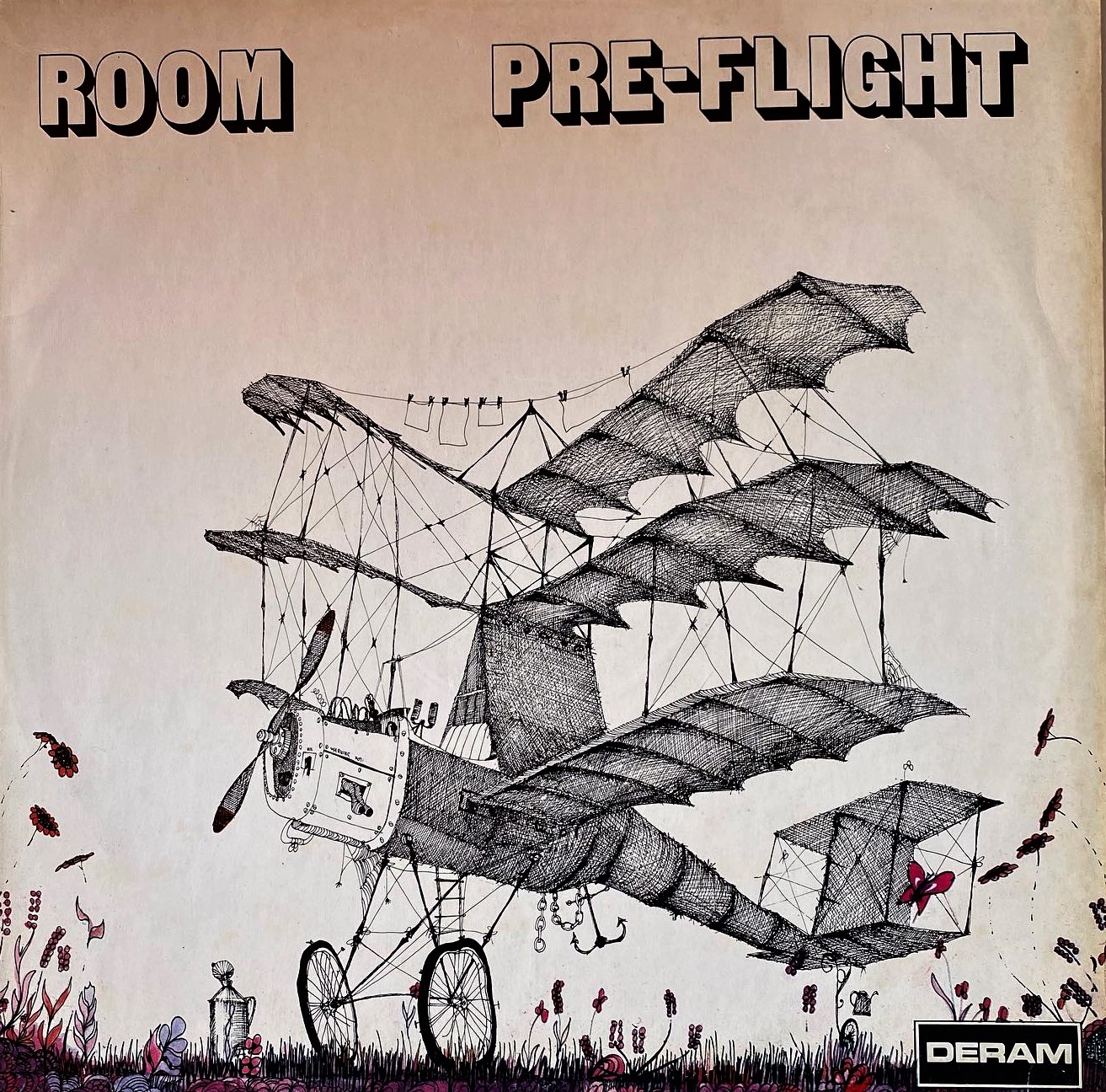
How pleased was the band with the sound of the album? What, if anything, would you like to have been different from the finished product?
Roy: Personally speaking I would have preferred not to have orchestral arrangements inserted into the tracks. The orchestration was good but the original music was harder edged than the orchestration suggests. I did not like the sound of “Big Ben” inserted into “Cemetery Junction Shuffle.”
I don’t think the drum sound reflects how Bob’s kit really sounded. His bass drum had more low end than the recording suggests,which gave the rhythm section more power.
Steve: I’d left before its release so can’t comment on how the band felt. For me, it has many faults. Disappointingly some average tracks made it, whereas others tracks I liked missed the cut. But as it was my only effort, I feel proud of what we achieved.
What’s the story behind the cover artwork?
Roy: While at art college I did these fanciful pen and ink drawings for amusement so we talked Decca into using one for the cover.
Steve: One of Roy’s many excellent pen and ink specials!
How many copies did Deram press?
Roy: I don’t know.
Steve: I’m afraid I have no idea.
Did the band tour to support the LP?
Roy: Not a promotional tour as such, but as I mentioned we did the colleges and a festival in France and two tours in Switzerland.
Steve: Roy has explained.
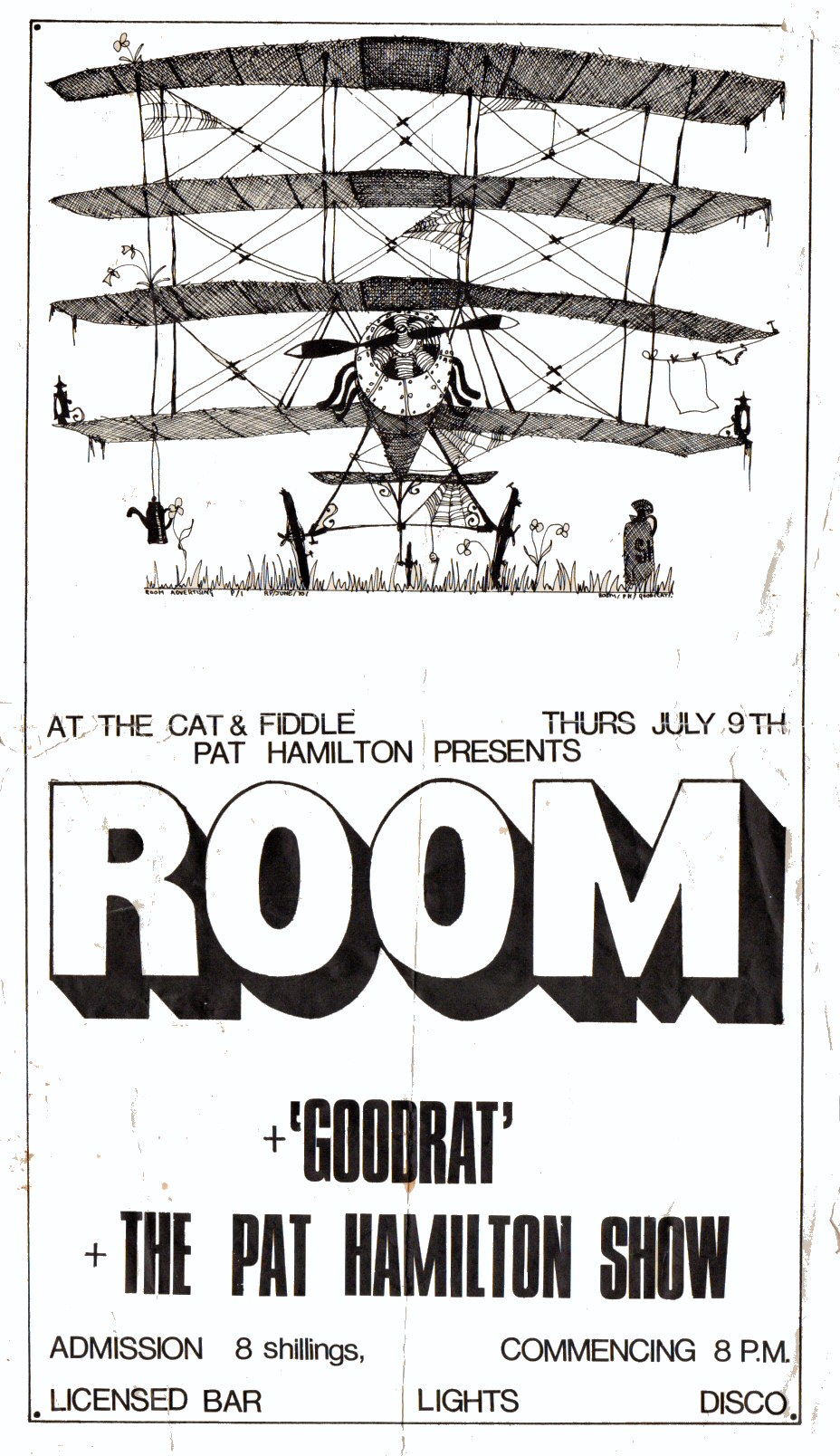
What happened after the band stopped? Were you still in touch with other members? Is any member still involved with the music?
Roy: Steve left the band for personal reasons but we are still in touch. I have exchanged emails with Bob in recent years but have not seen him personally since the Nineteen nineties. Bob is still a professional musician with an impressive CV.
Chris and I worked in several bands after Room disbanded. We toured around the UK, also worked in Denmark and even toured in East Germany and the Soviet Union in 1977.
Chris and Jane also worked together in the Average Blues Band for many years.
I did my last live gig in 2014 but have been recording ever since as I mentioned earlier.
Steve: Happily my wife Jean and I are still in touch with Roy and his wife Maggie, but distance apart limits contact. I made contact with Chris in the run-up to the Cherry Red re-release days in the mid-Noughties. I gather Chris is still playing with the blues band ABB whilst Roy enjoys home-recording his own – rather tasty – music. Bob, I understand, continues his wizard stuff on the drums.
Looking back, what was the highlight of your time in the band? Which songs are you most proud of? Where and when was your most memorable gig?
Roy: There are lasting memories which are in a way highlights. Things like meeting Howlin’ Wolf and shaking his enormous hand when we played support to his band. Being on the same bill as Peter Green’s Fleetwood Mac and sharing a dressing room after he started it all for me with ‘The Supernatural’.
Playing support to Pink Floyd when the first album I bought and played to death was ‘The Piper at the Gates of Dawn’.
I’m most proud of the effort we put into the original material. We worked very hard and rehearsed endlessly to make it as good as our ability would allow.
The most memorable gig was at the Albert Hall when we supported Pentangle. Things went wrong that day. My amp failed during the soundcheck and I had to borrow one. Steve had left the band by then and we did the gig as a four piece which limited the choice of material. I was twenty years old with three years experience playing to thousands of people and using an amp belonging to someone else and I remember thinking “Don’t worry if you screw this up you’ll get another chance.” We played well and I didn’t screw it up.
Steve: Dealing with the songs first, I was always encouraged by the adoption of some of my efforts on Room’s set list, and it felt good to belt these out on stage.
As for highlights, well, it was good to meet a good number of well-known musicians, but meeting Howlin’ Wolf was a special moment, matched by chatting to Peter Green about my Telecaster which he then played and praised its action. More generally, the way the band steadily improved and moved through the gears, is a treasured memory. My most memorable gig? Any of them as it meant food on the table. For a day or two…
Is there any unreleased material by Room?
Roy: I think Decca did record other material but I doubt it still exists.
Steve: Maybe Decca and EMI. But probably wiped years ago. Not found any home-recorded tapes. Yet.
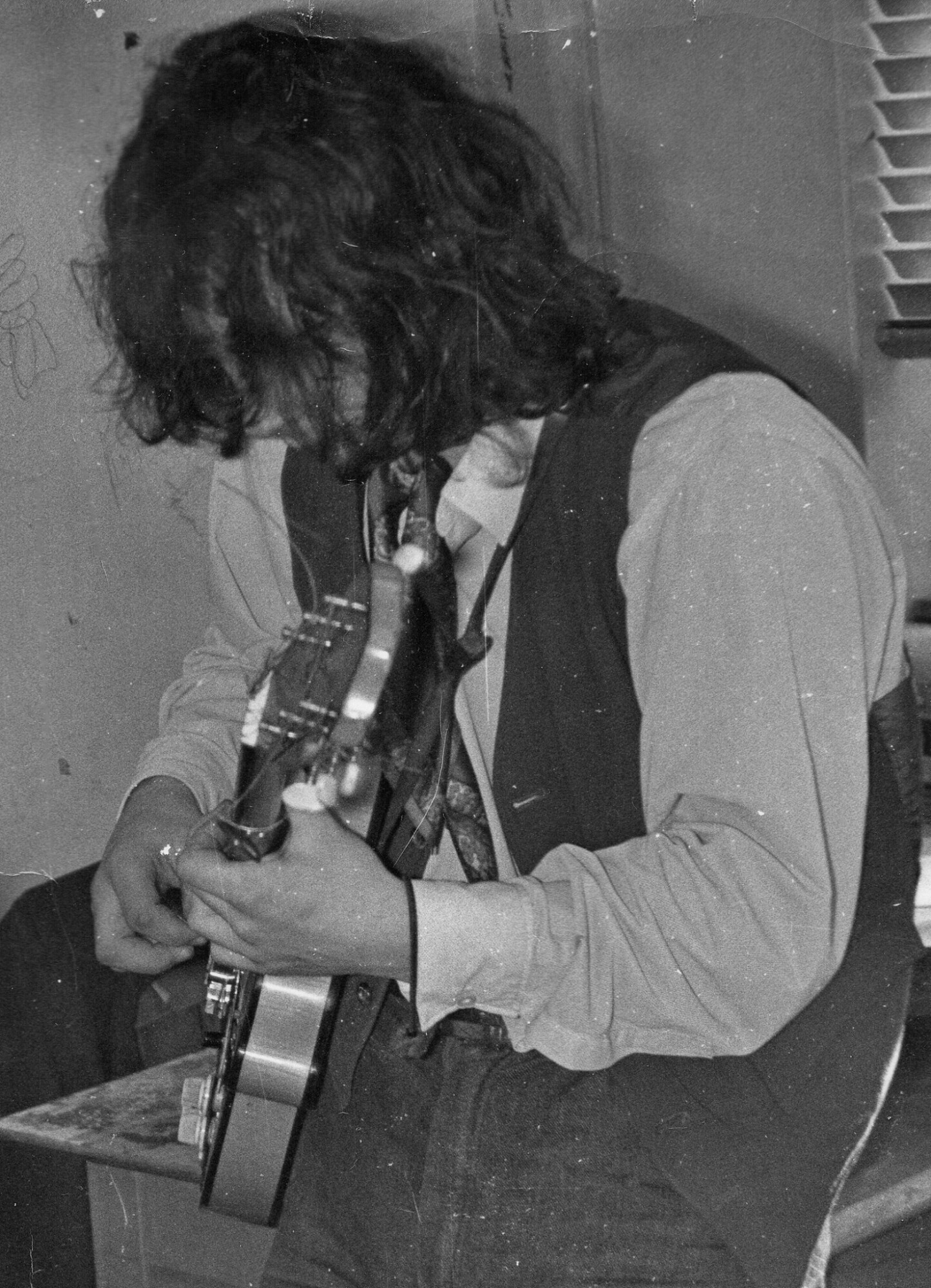
Thank you for taking your time. Last word is yours.
Roy: I and I’m sure the others are amazed that people still have an interest in what we recorded over fifty years ago and also for the prices that the original vinyl record has achieved.
Unfortunately the management we had at the time were only in it for short term financial gain which is a common story with bands from that time and Decca didn’t really know what to do with us. I gigged in bands for forty five years and mostly had a lot of fun and I can thank Peter Green for that.
Steve: I’m grateful to Roy for his kind contributions to these questions. Good to have his memories recorded. Thanks for the opportunity for me to blurt on about the band – please note these are my recollections only! It’s truly been a lifetime since the days of Room. Even so, it is always pleasing to see continuing, if small, interest in the band and I’m glad and proud to have made a tiny mark in musical history.
Headline photo: Room promotional photo (1969)

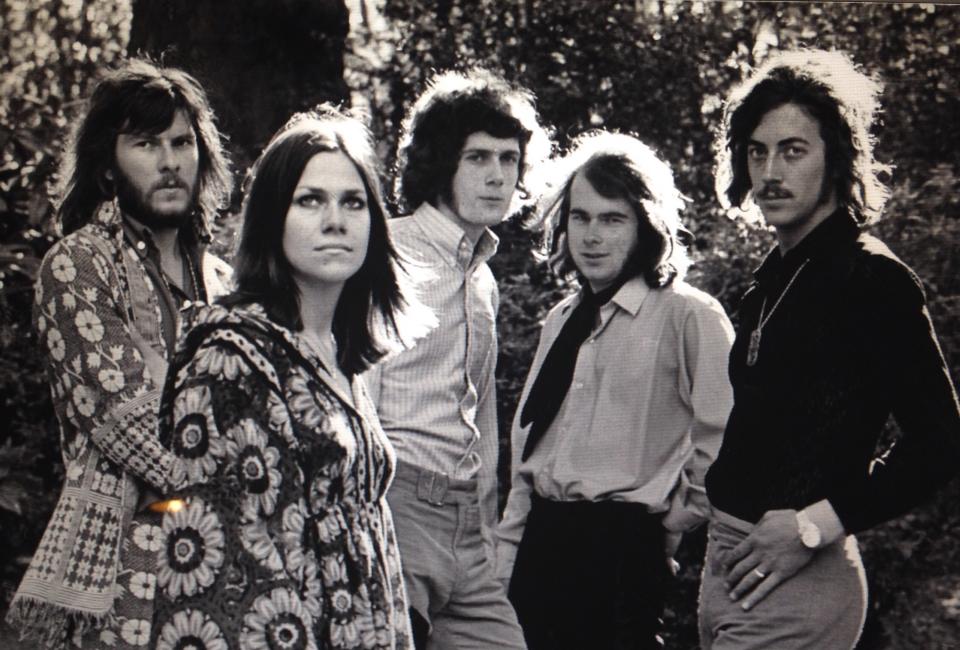
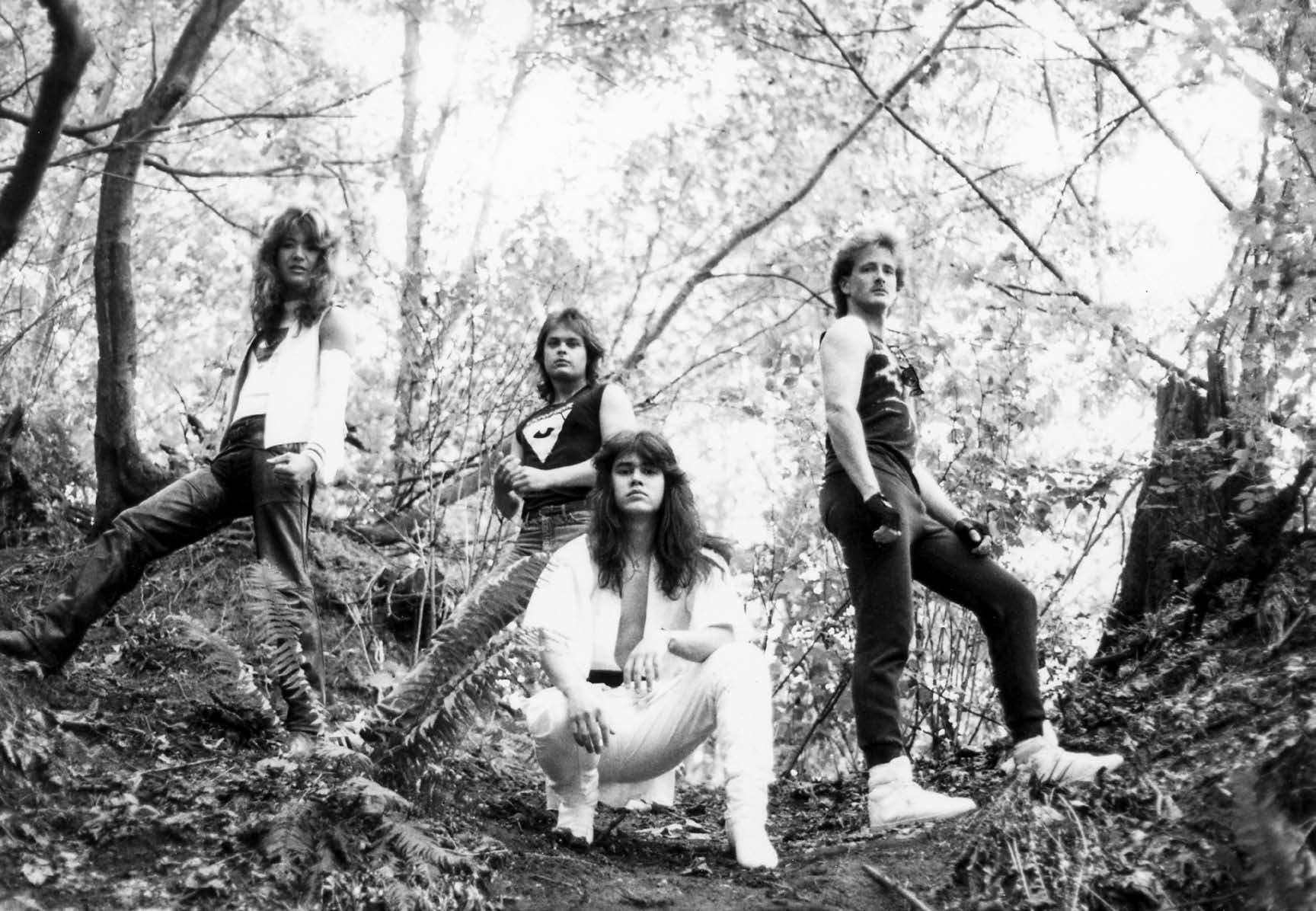
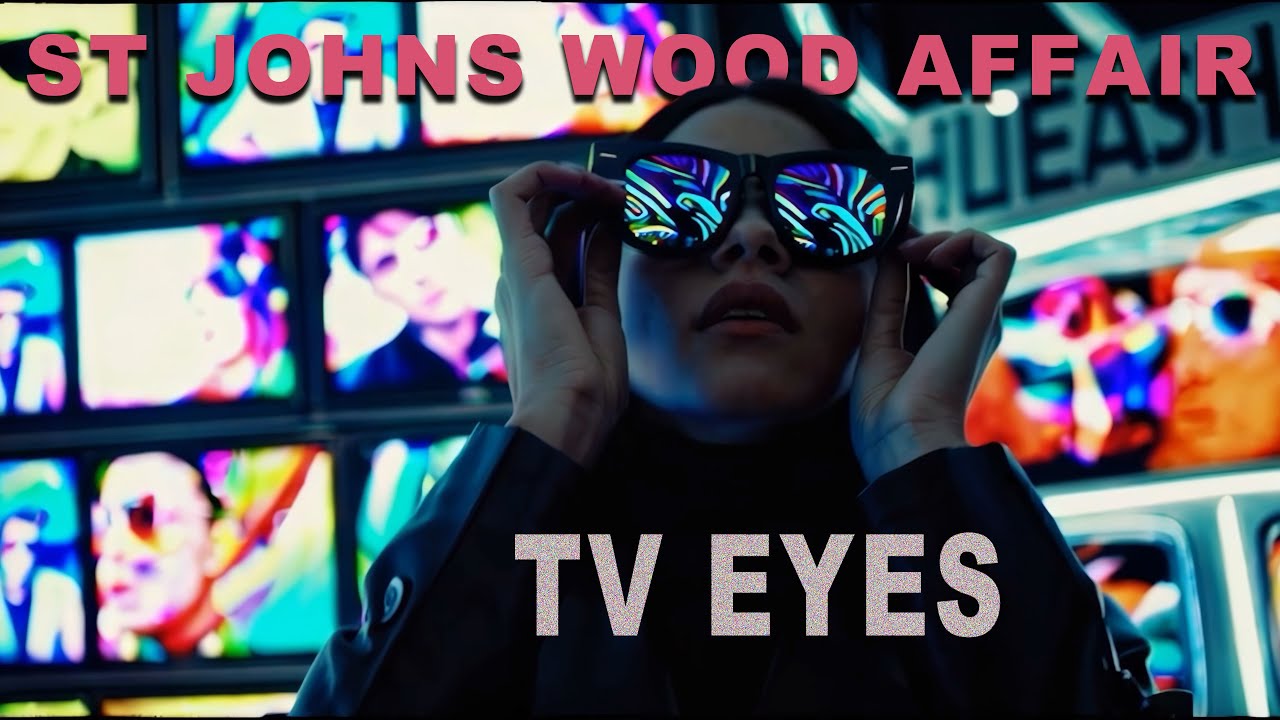
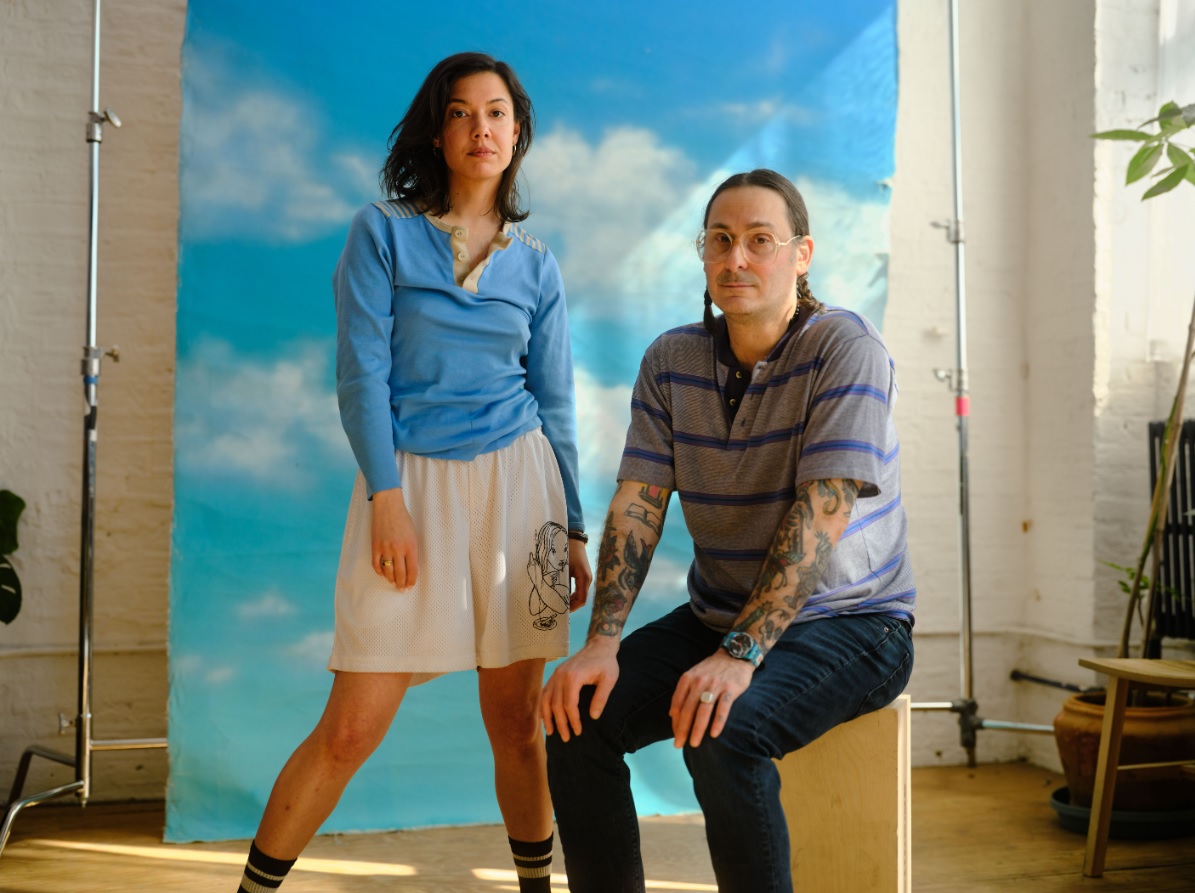
Brilliant interview by Roy and Steve.
Steve is my brother.